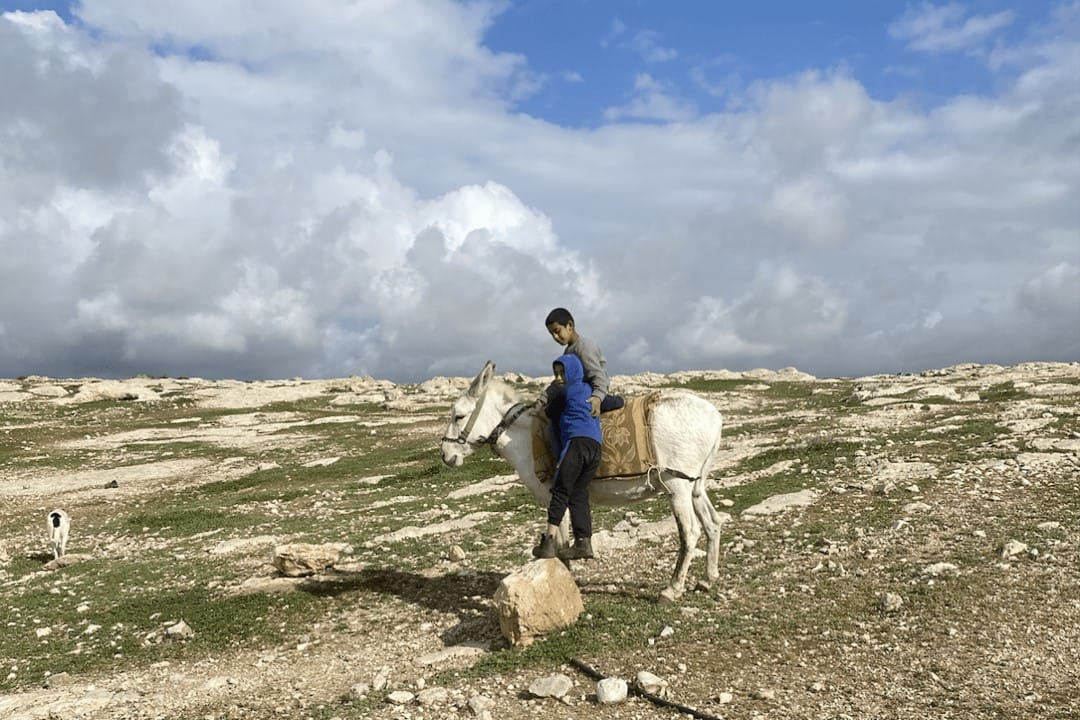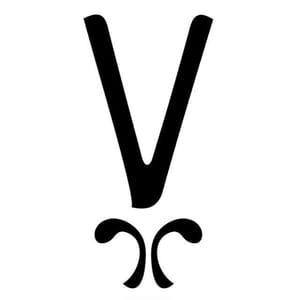Rapid response
Reflections on sustained solidarity and Jewish-Palestinian coresistance in the South Hebron Hills.

There is a running joke in Masafer Yatta, Palestine, that all the Jews are called Maya. And we laugh at it, at this funny coincidence, but as we laugh we are somewhere a little sad, because we all know full well that this is the very name for us, that Maya means water in both Hebrew and Arabic, and that water is the shape we take on when we are living here. That is the quiet agreement you have to make with yourself; your time is not your own, your thoughts are not your own, that indeed any wandering thought, any extreme or painful feeling, belongs on this day not in truth to your heart but to the heart of the person you are standing next to.
When it comes to explaining the situation in Masafer Yatta, what it is that you actually do, what is the reason, and the cause, and the effect, each time you will torture yourself over whether or not to say you are an activist, in what tone and with what kind of look on your face. You learn over time to develop a special, ridiculous smile, the smile of a criminal in the moment of being caught, for the specific occasion of calling yourself an activist. For certainly, you are not a settler, you are one of the good ones, one of the Mayas. But a thousand times in a day you are struck with fear, perhaps you are no better than that settler now entering the village, now brandishing a metal pole; or perhaps you are no better than that soldier who demolishes a house in a moment. And so, the question of whether it is a better or a worse thing that you are here always keeps you on your toes.
To put yourself forward for rapid response is to be prepared to surrender even your face, its natural features and expressions. You must be ready to place it in the hands of the little girls who live next door, and to say, when asked what colour lips or eyeshadow you would like: you choose.
Also you must be ready at all times to put down the sad book of Darwish’s poems you are reading, and to play with just this much happiness in the playground. There, to push the swings as strongly and then as softly as instructed. And the moment you are presented a hand curving itself into half a heart shape, you know what it is for you to do. You know, that when push comes to shove, you will give away to the little girl who is crouching over your shoulder, the watercolour you are making of Al-Aqsa – you who are the last person on earth in need of a watercolour of Al-Aqsa.
For this is what it is to be a Maya: to wear who you are quietly, on a bangle around the wrist. To have it clang so very gently against you as you steady a camera, as you rock a baby to sleep, as you cut a tomato into the finest possible pieces, as the knife finds a way of slipping into you, and as very nicely and very quietly you bleed.
You will come to understand what it is to be moved in equal parts by the clamour of this shepherd, and by the gentle refrain, kul yom, kul yom, of that shepherd. You will not hesitate to call the police about the unspeakable injustice when you are asked to call the police about the unspeakable injustice. And they’ll come or they won’t come, but always you’ll sit for tea.
When the shepherd asks you where you are from, you will want to cry out, who knows, but politely you will answer that you are from Britania. And as you walk back down the mountain for tea, you will delight him with beautiful pastoral descriptions, with bright, smiling eyes you will explain to him about the green dales of Yorkshire. You will be so good, you won’t say a word about Mitzrayim or Leipzig. With an elegant and metaphorical hand you will sign the metaphorical contract with the Palestinian shepherd who wants one day to be flown, along with his entire flock, to Yorkshire. Always, yom asal, yom basal, come day of honey, come day of onions, you must sit for tea. Sooner or later it will be impossible for you to distinguish the wife of the shepherd who in the corner is pouring you your tea, from who it is that pours out the heavens in the night.
You will never understand into which folder goes each image, according to time and date, and according to the category and degree of violence. But you know where it hurts, truly you will know in which chamber of the heart.
And when suddenly you need your mother, you will have to anticipate her, and echo her, you have to shout down the phone how dramatic you are, how vulnerable, and how young.
And you have to go, because of the bulldozer.
Maya: it sounds like the ocean going back on itself. It is your quiet, secret name, which has always lain in the very middle of who you are. When you were younger, it seemed to you much too loose and undefined, as if it were a part of yourself that had only been pencilled in, that would need going over later. And you prayed for many years for a real biblical name, you prayed to be Esther, the queen of the Purim story, who saves her people at the touch of a sceptre.
But nowadays you have no need to be Esther, just as the rain has no need to land anywhere at all in particular, as long as it lands somewhere or other, as long as it lands from time to time. Now you have sat and listened to Megillat Esther in Masafer Yatta, with the fireworks going off in the settlement behind, each an open wound, right there, in the middle of the sky, and you have prayed for the ground to swallow you whole; now you know in your heart that you are not Esther but Maya, that you would not give up Maya for a single kingdom on this earth.
For this is what it is to be a Maya: to wear who you are quietly and around the wrist.▼
Kate Greenberg is a writer, activist, and editor at Vashti.
Author

Kate Greenberg is a writer, activist, and editor at Vashti.
Sign up for The Pickle and New, From Vashti.
Stay up to date with Vashti.



